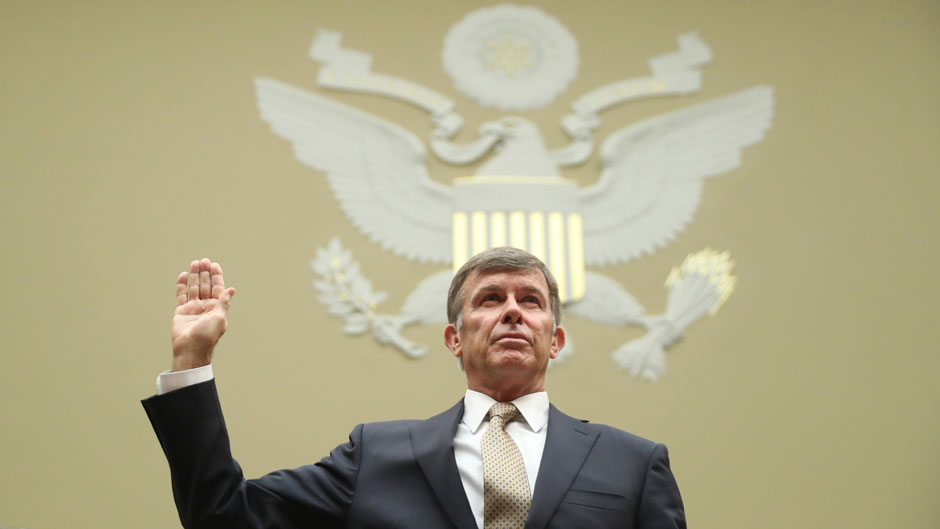Editor's note: Gregory Koger, a professor of political science at the University of Miami, examines the foundation of the impeachment inquiry by House Democrats into President Donald Trump. Koger, who specializes in legislative politics and political parties, is the author of Filibustering: A Political History of Obstruction in the House and Senate.
As political scientist Jennifer Victor explains, this scandal has several elements that finally united the House Democratic caucus around an impeachment effort.
It is a baldly political effort to manipulate the 2020 election with the assistance of a foreign power; it involves subverting the intelligence community; and there is a vast effort to lie and conceal the truth. The whistleblower was not a direct observer of the key events in this narrative, but the complaint lays out a clear set of guideposts for a Congressional investigation.
The background:
President Trump, nervous about polls showing him losing to Joe Biden in a hypothetical 2020 general election, hoped to link Biden and his son, Hunter Biden, to corrupt business dealings in Ukraine (Note: credible news sources have dismissed this underlying claim).
It appears that Trump had Rudy Giuliani and Attorney General William Barr investigating this “scandal” in the U.S. and Ukraine.
Trump wanted the assistance of Ukraine in this investigation. Toward this end, he personally ordered a halt to U.S. military assistance to Ukraine, which Ukraine desperately needs to fend off Russia-backed assaults.
The phone call:
On July 25, Trump called the newly-elected president of Ukraine, Volodymyr Zelensky. According to an edited White House summary of this call, Trump:
- Requested that Ukraine investigate a conspiracy theory regarding the Russian government hacking of the Democratic National Committee in 2016;
- Raised the issue of renewing the Ukrainian investigation of Joe and Hunter Biden, and urged Zelensky to speak with Giuliani and Barr;
- Reminded the president of Ukraine that the U.S. provides a lot of assistance to Ukraine and noted that the relationship has not been “reciprocal.”
In context, these “requests” can be interpreted as soliciting a campaign contribution (the investigation itself and any anti-Biden news that follows) from a foreign government, and continuing to withhold U.S. military assistance unless Zelensky complies with Trump’s demands would be an extreme case of extortion, using the full force of the presidency.
Soon afterward, White House officials who realized how much legal and political jeopardy Trump would be in if the text of the phone conversation was revealed, transferred the transcript of the Ukraine call to a super-secret server used for classified material. This was inappropriate, since there was reportedly no national security justification for classifying the conversation. The whistleblower report alleges that this is part of a cover up, and that other documents and phone calls may have been similarly hidden away to avoid political accountability, even though they contained no national security secrets.
The whistleblower report:
On Aug. 12, an unknown person filed a “whistleblower” complaint with the inspector general of the Intelligence Community (IGIC). There is a general federal law allowing any employee to report waste, fraud, or abuse anonymously, thereby avoiding retribution, but this complaint was filed under a law that is specific to the intelligence community due to the sensitivity of government secrets. This person was not physically present for the Ukraine phone call but read a description of the call and spoke to multiple White House officials who were directly involved in the call.
The IGIC subsequently investigated these claims and found them accurate and found that they pointed to an “urgent concern” that “appears credible.” The IGIC presented this confirmation to the acting director of National Intelligence, Joseph Maguire, two weeks later. Maguire then consulted with the White House Counsel and the Justice Department, even though the president and attorney general were directly implicated in the complaint. The White House raised concerns about executive privilege and the Justice Department blocked the transmission of the whistleblower report. The Justice Department claimed that a) the intelligence whistleblower statute did not apply because the President is not part of the “intelligence community” (despite being “commander-in-chief” and head of the executive branch) and because the Justice Department was investigating possible criminal charges. Justice Department officials then dismissed any possible charges, but the blockade on the whistleblower report remained in place even though the underlying statute did not allow Maguire any discretion to withhold it from Congress.
It is not clear at present whether Attorney General Barr—who is directly named in the complaint and facing possible legal jeopardy—recused himself from consideration of the report. Congress will certainly seek to trace the internal process leading up to the decision to keep the report from Congress. Congress may also determine whether this scandal is related to the resignations of Dan Coats as the director of National Intelligence (announced July 28) or John Bolton as national security advisor on Sept. 10. Bolton, for example, is likely to have been in the room when Trump talked to Zelensky on July 25.
Gregory Koger is a professor of political science in the University of Miami College of Arts and Sciences.

